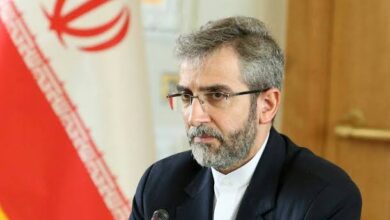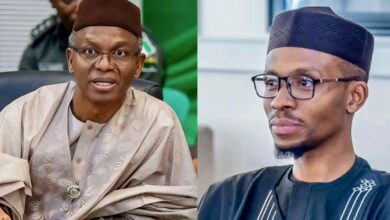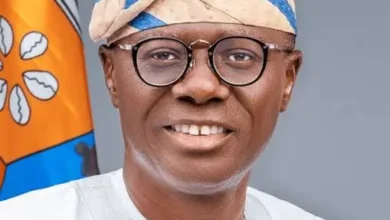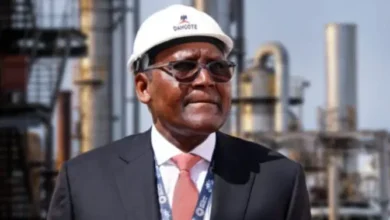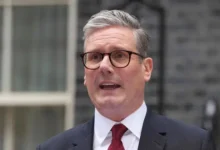OPINION: Nigeria’s crisis runs deeper than just a war on Christians
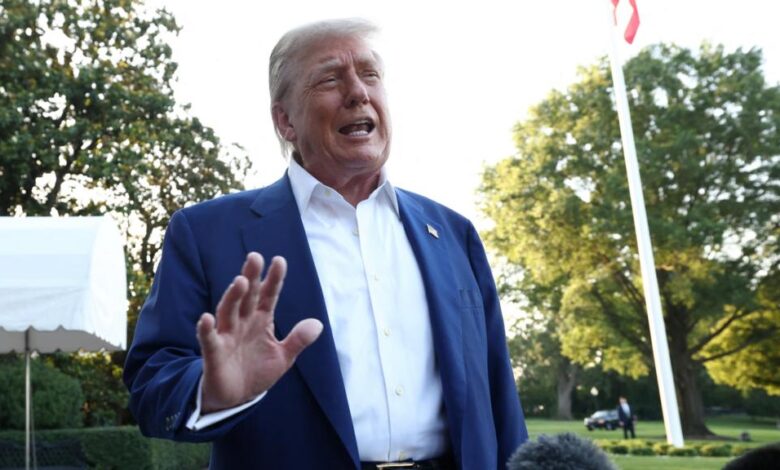
By JAMES BARNETT, Washington Post
The Trump administration is dangerously misreading the conflict and its causes.
In less than 48 hours, President Donald Trump went from announcing that he would designate Nigeria a “country of particular concern,” a State Department label that admonishes countries that fail to protect religious freedom, to announcing that he was preparing a military intervention to save Nigerian Christians. Policy swings are not uncharacteristic of this president, but the abrupt embrace of a “responsibility to protect” mindset from someone who has long claimed to oppose military interventions represents a remarkable pivot.
Christians absolutely are being threatened and killed in parts of Nigeria. I can personally attest to it. But to frame Nigeria’s crisis entirely in that way badly distorts the complicated and tragic reality on the ground. Shaping U.S. policy around such distortions, especially when U.S. troops may be put in harm’s way, will not yield good outcomes.
For several years, I lived and worked in Nigeria, studying its conflicts and interviewing different militant groups. I would never advise anyone to downplay the suffering of Christians who have experienced horrific attacks. I have seen and heard from many victims firsthand. But I have also seen the impact of similarly horrific violence across Muslim communities. To ignore the latter is to misunderstand what is really going on.
Voices ranging from former Trump officials to the Vatican have cautioned against framing Nigeria’s complex insecurity in solely religious terms. Conflict has grown rampant in Nigeria under successive governments, and the country now faces various militant groups pursuing different agendas. Lumping them all together and reducing their motives to anti-Christian animus is a mistake.
Many in the Republican Party understandably care about the status of Christians overseas, and Nigeria has been a focus of various advocacy groups for years. But the plight of Christians has created something of a foreign policy dilemma for Trump.
One of the largest oppressors of Christians in the world is the Chinese Communist Party. Trump has long been engrossed in negotiations with China over priorities such as critical minerals and halting fentanyl flows. Pushing for the release of Chinese political prisoners risks getting sidelined during such high-level engagements. Other regimes that have also failed to prevent violence against Christians, such as Pakistan and Egypt, have managed to avoid threats of military intervention by positioning themselves as key partners on critical geopolitical issues or because they have simply projected an image of having a strong leader who is open for business.
Trump’s abrupt announcements this week were reportedly due to an emotional response to a segment about Nigerian Christians he saw on Fox News. He and his advisers likely feel that Nigeria is a place where the United States can flex its muscles in defense of Christians without incurring significant geopolitical risks.
Unfortunately, Trump won’t be able to make the Nigerian government end the violence overnight with his threats. The Nigerian political elite deserve plenty of blame for failing to fight insecurity. But the conflicts that Nigeria faces are multilayered an fragmentary. Nigeria has a quasi-federal system and deeply polarized society — along religious lines, yes, but also by party, ethnicity and other factors — meaning that it can be difficult to generate political consensus to implement policies to reduce conflict.
Religion will always be an unavoidable a topic in U.S.-Nigeria relations, and that is not a bad thing. Much to its credit, Nigeria is religiously cosmopolitan while actually being religious. Coexistence is commonplace, rather than an exception: When I celebrated my traditional marriage rites, I had fellow Catholics, Pentecostals and Muslims among my groomsmen.
But we should not equate this
diversity with a perfectly harmonious society, as anyone who has witnessed a Nigerian election can attest. Religion and ethnicity are also contested political identities. When the U.S. president privileges the suffering of one group over another, echoing the talking points of certain militants, it not only misrepresents the country’s true problems, but further divides Nigerian society.
One could imagine Trump the dealmaker coming to an agreement that actually sees increased U.S.-Nigeria security cooperation. But Nigeria must be proactive if it is to shape such an agreement. If it is not, “security cooperation” could easily end up providing cover for Trump ordering U.S. airstrikes or even raids against Nigerian militants. Such operations would not be decisive in defeating the militants but would risk exacerbating religious tensions in one of the world’s most populous countries.
The Nigerian government’s best bet is to listen to its people. One of the few points of consensus across religious lines is that the insecurity must end. Tackling that insecurity head-on, rather than getting distracted by the typical horse-trading ahead of the 2027 elections, is the best way for the government to earn some goodwill from Washington and its citizenry alike.
Nigeria will also need to improve its diplomacy: The Trump administration will need to understand the scope of the problem and be convinced that addressing it is a massive effort that will require time and possibly different forms of international support. At the same time, Nigeria’s government will have to show that it is making measurable progress, not just playing games.
It’s been an odd few days to be an American who is deeply invested in Nigeria’s fate. The most powerful world leader is suddenly paying attention, calling out violence that must be addressed while fundamentally misreading it at the same time.
A military intervention premised on the wrong diagnosis would not save Nigerian Christians. It would only deepen Nigeria’s troubles while drawing the U.S. into a set of conflicts it is not equipped to solve. Trump’s base, though concerned about Christians, is surely not interested in a repeat of Black Hawk Down or Libya.
Trump has succeeded in getting Nigeria’s attention. To capitalize on that in a way that might truly help Nigerians, he and his team will need to develop a more nuanced policy that treats Nigeria as more than a mere morality play.
James Barnett is a PhD candidate at University of Oxford and a nonresident fellow at Hudson Institute.


